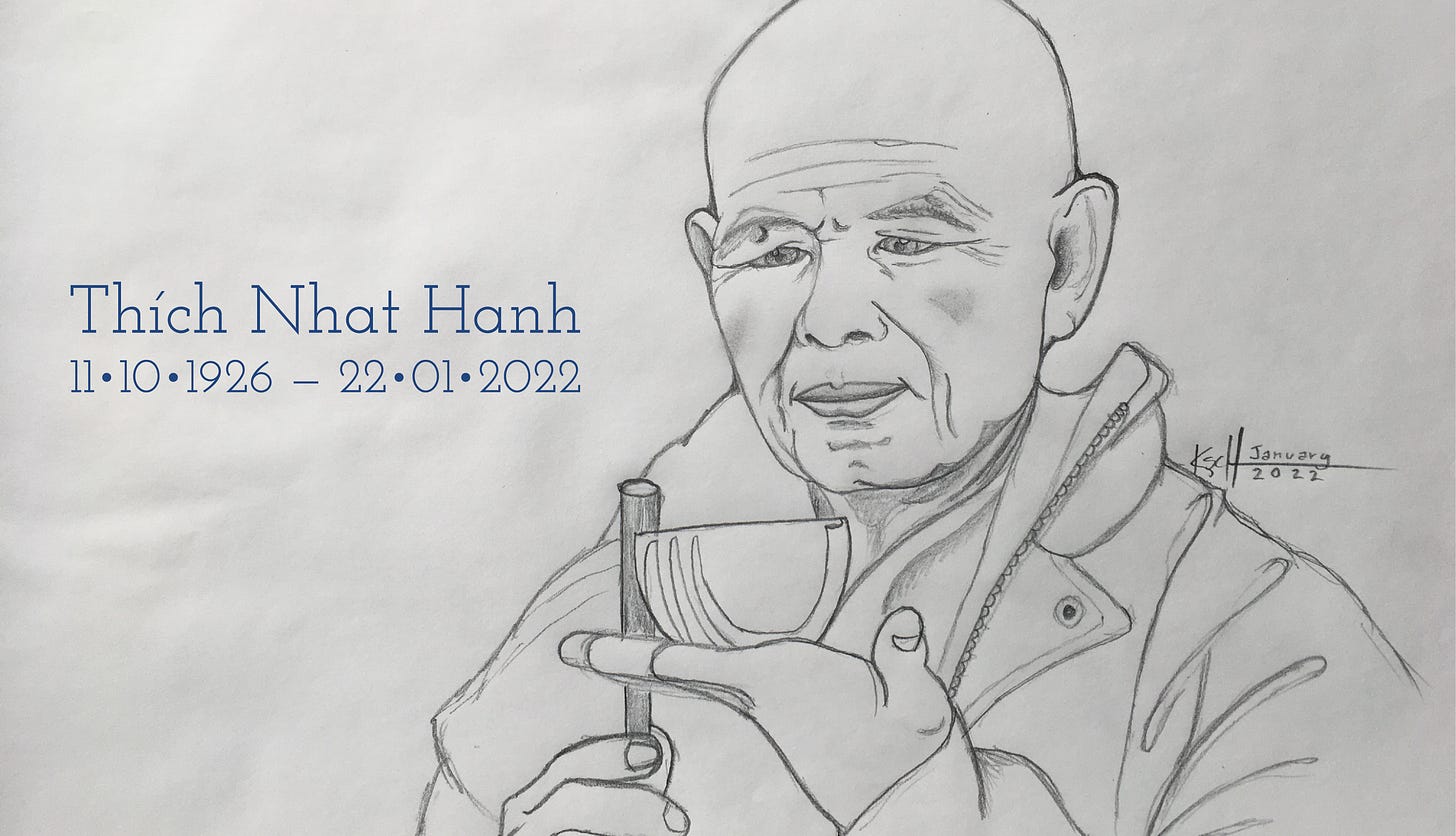The Gentle Wisdom of Thích Nhất Hạnh
A memorial post honouring the life and legacy of a contemporary Bodhisattva
While Zen Buddhism has not held the same place in my heart as the sects and lineages that emerged From Tibet, many Zen teachers have had a signifiant influence on my practice. Thích Nhất Hạnh is one such teacher. While I never met him personally, I’ve known a great many of his students, and his teachings are some the the clearest and most direct I’ve ever encountered. When someone asks me for recommended reading to understand the basics of Buddhist practice, I will inevitably suggest one of Thích Nhất Hạnh’s books as a place to start.
The first of his books I read was his commentary on the Heart Sutra1. I’d been practicing with the Heart Sutra for only a short time, maybe a year, and the commentaries I’d encountered before ranged from impenetrably dense (The Heart Attack Sutra) to monastically traditional (Essence of the Heart Sutra2) to too academic to even bother trying to read them. Thích Nhất Hạnh’s instruction (on what is probably the most well known sutra in Buddhism) is grounded and clear. He presents it so simply, free of overtly complex analysis, while offering immediate insight on how one can apply the wisdom of the Heart Sutra right here and now.
This is why Thích Nhất Hạnh’s life and teachings have had the impact they have, and why his death is felt so strongly throughout Buddhist communities all over the planet. He lived his life in service to our collective liberation. As my fellow chaplain, Ayo Yetunde shared in a talk she gave on the teachings and practice of Thích Nhất Hạnh, he is the embodiment of what it is to engage directly with that and those who cause the most suffering. He is the embodiment of transformative action.
The grief I feel at his transition from this world and life into whatever awaits is gentle. Thích Nhất Hạnh lived life well, to the benefit of a great many beings, myself included. He was able to connect and collaborate with some of the greatest practitioners of deep, universal love, liberation and justice. He gave the gift of his practice to so many people, leaving a legacy of students, writings, and talks that generations to come will benefit from. He truly is an example of what it is to walk the path of the Bodhisattva.
May we aspire to live so wisely.
To my lovely subscribers, I have a version of the Heart Sutra I compiled based on several translations that used gender inclusive language throughout. If you would like me to share this with you, you can reply to this post in your inbox just like you would any email, and I will send it to you. _/\_
This is not to say that His Holiness the Dalai Lama’s commentary is not worth reading. Indeed, I would recommend, to anyone who wishes to understand what the Heart Sutra has to offer, reading HHDL’s The Essence of the Heart Sutra, Thich Nhat Hanh’s The Heart of Understanding, and Zenju Earthlyn Manuel’s The Way of Tenderness, in that order.




